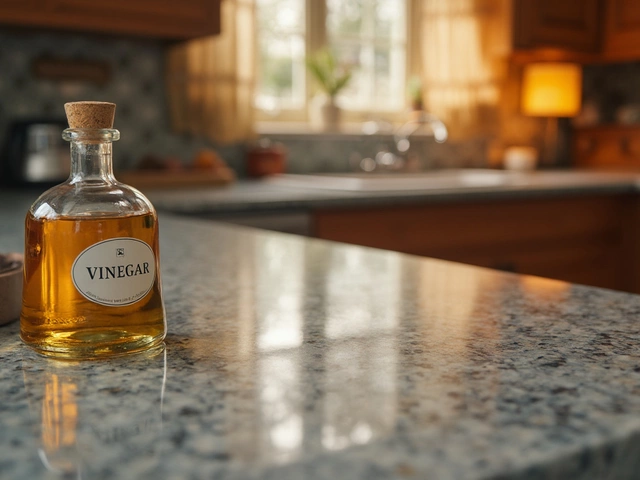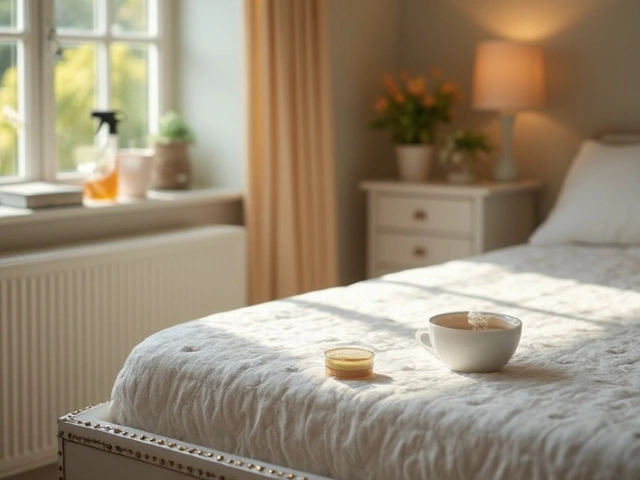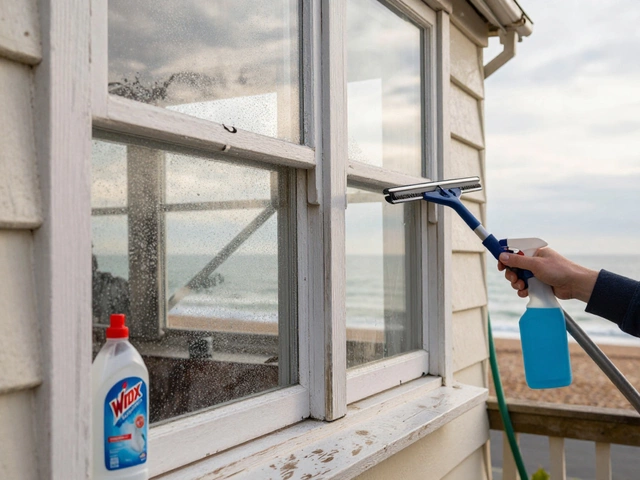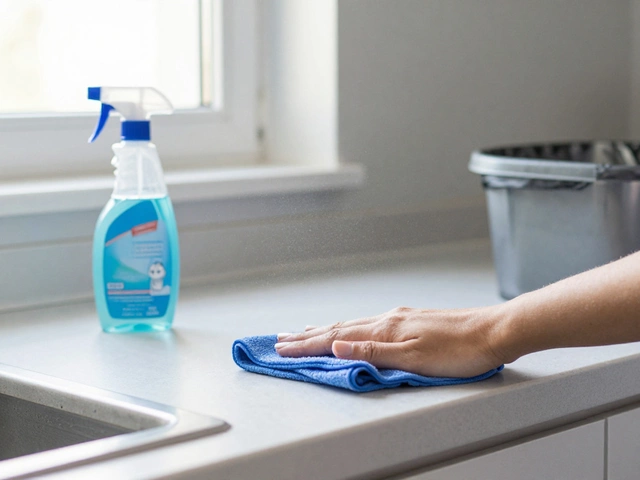Ever wake up and feel like your bed's got a funk? Yeah, it happens. Over time, your mattress can get a bit smelly from sweat, spills, and all that good stuff you might not want to think about. But don't stress, we're going to handle this together. Cleaning your mattress isn’t rocket science, but it does require a bit of elbow grease and know-how.
First things first—let's figure out what’s causing that not-so-fresh scent. It could be anything from sweat and body oils to old spills or even that time your pet decided your bed was their playground. Identifying the culprit can help you choose the right cleaning method.
Once you’ve pinpointed the problem, it’s time to gear up. You’ll want some basic cleaning supplies like baking soda, a good vacuum cleaner, and maybe a splash of vinegar if things are really dire. Trust me, these humble ingredients pack a punch when it comes to busting odors.
- Identifying the Source of Mattress Odor
- Preparing to Clean Your Mattress
- Deep Cleaning Techniques
- Preventing Future Odors
Identifying the Source of Mattress Odor
So your bed's got a whiff to it, and you're wondering where it's coming from. Knowing the source of that unpleasant smell is the first step in effective mattress cleaning. It's not always obvious, but some detective work can save you from needless efforts.
Start by stripping your bed and giving your mattress a good old sniff test—embarrassing, but necessary. Usually, odors come from a combination of sweat, body oils, and occasional spills. If you often find yourself snacking in bed or if your pet enjoys napping alongside you, food particles and pet dander could be the culprits too.
Smelly mattresses can also be the result of more serious issues like mold or mildew, especially if you live in a humid area or had a spill that didn't fully dry. Mold can be nasty business; it's important to catch it early for both your health and your mattress's lifespan.
If you notice any discolored spots, especially if they’re greenish or black, your mattress could be harboring mold or mildew. Take a close look and remember, sometimes these spots are hiding under seams or in less visible areas of the mattress.
Another less common but possible source of odor is being invaded by dust mites. These microscopic critters thrive on dead skin cells and can cause unpleasant smells, especially if you’re allergic.
- Body Oils and Sweat: Often the most common odor source, accumulates over time, leading to a persistent smell.
- Food and Drink Spills: These can create sour odors if not cleaned up properly.
- Pet Dander and Hair: Regular visits from your furry friend can contribute to the stink.
- Mold and Mildew: Check for spots if you notice musty smells, especially in humid climates.
- Dust Mites: While less smelly, they can exacerbate existing odors and impact air quality.
Once you've narrowed it down, you'll be in a much better place to tackle the problem head-on. Identifying the source can guide you in choosing the right cleaning method to make deep clean mattress solutions more effective.
Preparing to Clean Your Mattress
Ready to tackle that smelly mattress? Great, let's get prepped. Before diving into deep cleaning mode, you'll want to gather a few essential items. Trust me, having the right tools on hand makes all the difference.
Here's what you'll need:
- Baking Soda: This little powerhouse is your best friend for neutralizing odors.
- Vacuum Cleaner: A vacuum with an upholstery attachment is perfect for sucking up those dust mites and dirt particles.
- Vinegar and Water: Mix equal parts for a mild cleaning solution that's safe for most fabrics.
- Clean Cloths: Old towels or microfiber cloths work great for scrubbing and blotting.
- Essential Oils (optional): A few drops of lavender or tea tree can add a pleasant scent and help with disinfection.
Before you start, it's wise to check your mattress label or any cleaning instructions it came with. There's nothing worse than making things worse with the wrong product or technique. Most mattresses can handle a bit of baking soda and vacuum action, but if you're unsure, a quick look at the manufacturer’s guide can save you a headache.
If this isn't your first cleaning rodeo and you've noticed recurring stains or odors, jot down their sources and spots. That'll help you focus your cleaning efforts where they're needed most.
Now, let's get everything set up. Strip your bed down to the naked mattress, wash your sheets in hot water if they're compatible, and let's make sure we're tackling this at the root. A good clean does more than freshen things up; it also helps prolong the life of your mattress, which is a win for your sleep and your wallet.
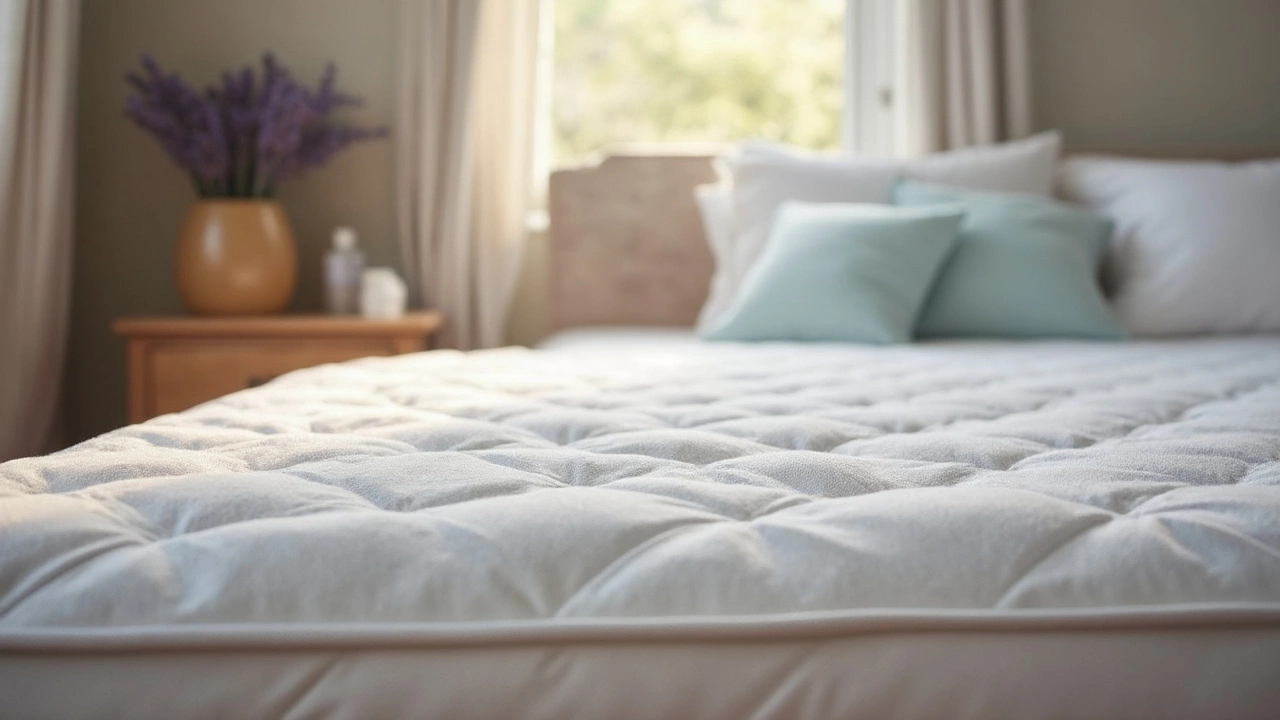
Deep Cleaning Techniques
Alright, now that we know what's causing that smell, let’s roll up our sleeves and dive into some deep cleaning action. You don’t need fancy gadgets or chemicals; a few everyday items will do the trick to freshen up your mattress real good.
Start by giving your mattress a thorough vacuuming. Grab a vacuum cleaner with a handheld attachment and go over each square inch, focusing on seams and crevices where dust and allergens love to hide. Vacuuming helps get rid of dust mites and loose debris – it's kind of like hitting the reset button.
Next, sprinkle a generous amount of baking soda across the entire surface. This miracle powder is a natural deodorizer and works wonders on stubborn smells. Let it sit for at least 15 to 30 minutes; better yet, leave it for a few hours if you have the time. This will help absorb all those not-so-great odors lurking in your mattress.
While the baking soda does its magic, you can prepare a homemade cleaning solution. Mix equal parts of water and white vinegar in a spray bottle. Lightly spray this mixture over the mattress surface. Don’t soak it – the goal is just to dampen the top layer. The vinegar might be a little smelly initially, but don’t worry, it’ll evaporate and take the unwanted odors with it.
Once the baking soda has done its thing, vacuum it off completely. You’ll probably notice an immediate improvement. If there are any specific stains left, you might want to treat them with a spot cleaner. A simple mix of hydrogen peroxide and dish soap can often do wonders. Dab it on, let it sit for a bit, and blot it off – no need to scrub hard.
For those dealing with frequent stains or more serious mattress concerns, investing in a waterproof mattress cover can be a game-changer. It will help protect your investment and make cleaning a breeze the next time around.
By following these easy steps, you'll not only banish odors but also extend the lifespan of your mattress, making your bed a pleasant place to crash at the end of the day.
Preventing Future Odors
Nobody wants to spend their nights sinking into a smelly mattress again after just cleaning it. So let's talk about keeping your mattress fresh for the long haul.
The first thing on your list should be a mattress protector. Think of it as a shield that helps fend off spills, sweat, and all sorts of potential messes. They're pretty easy to wash, so you can keep everything underneath clean without much hassle.
Another smart move is regular ventilation. Let your mattress breathe by flipping it every now and then, and when the weather allows, open up a window to air out your bedroom. Stale air can contribute to that unwanted mattress odor.
Avoid eating or drinking in bed to minimize the risk of spills. Okay, we all love breakfast in bed, but maybe keep those meals to special occasions—it’s just safer that way!
Deodorizing with some baking soda every few months can really help. Sprinkle a layer on the mattress, let it sit for a bit, and then vacuum it off. Easy, right?
"Prevention is always better than cure when it comes to mattress care," says Pete Matthews from Mattress Experts. "Simple habits can extend the life of your mattress and help maintain its freshness."
Lastly, consider regular cleaning schedules. Doing a thorough vacuum and mattress cleaning every season can do wonders. This maintenance routine will keep everything at bay and ensure you sleep like a king.

